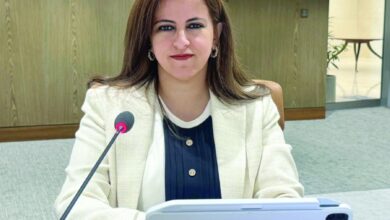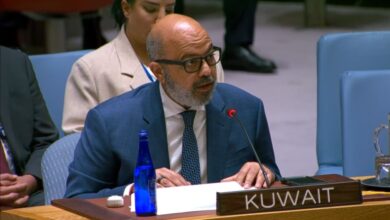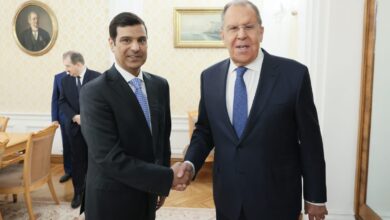Kuwait, a superpower in humanitarian work and diplomacy, is among world’s largest donors of humanitarian aid per capita: Fletcher
. . . highlights Kuwait’s remarkable record of generosity and leadership in global humanitarian efforts; commitment to compassion, wisdom, and international cooperation continues to inspire the global humanitarian community
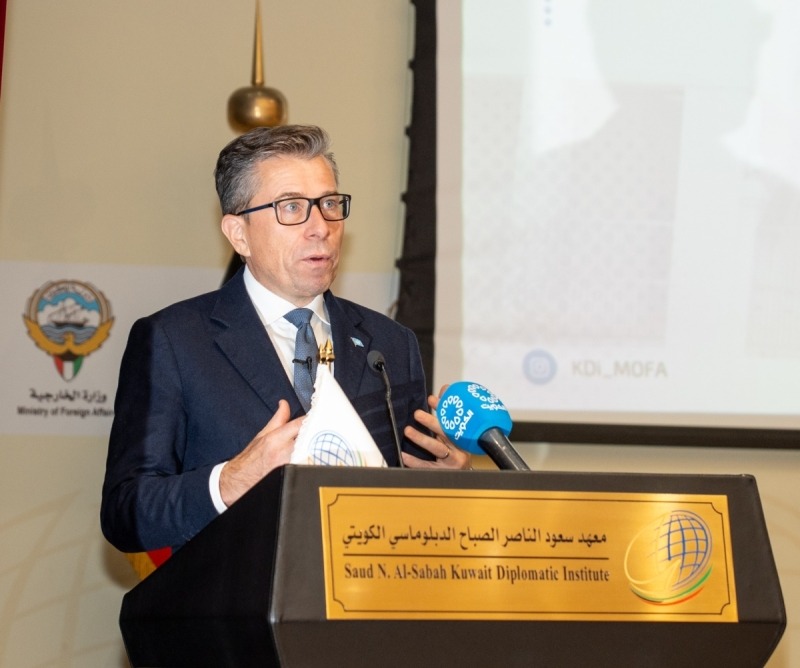
United Nations Undersecretary-General for Humanitarian Affairs and Emergency Relief Coordinator Tom Fletcher praised Kuwait as a “superpower in humanitarian action and diplomacy,” commending its enduring partnership with the United Nations and its steadfast commitment to humanitarian principles.
Speaking at a symposium organized by the Saud Al-Nasser Al-Sabah Diplomatic Institute under the title “Humanitarian Action in a Changing Global Landscape: Challenges, Opportunities, and Kuwait’s Pioneering Role,” Fletcher highlighted Kuwait’s remarkable record of generosity and leadership in global humanitarian efforts.
He noted that Kuwait’s commitment to compassion, wisdom, and international cooperation continues to inspire the global humanitarian community, calling for deeper partnerships to ensure that humanitarian action remains effective, principled, and impactful.
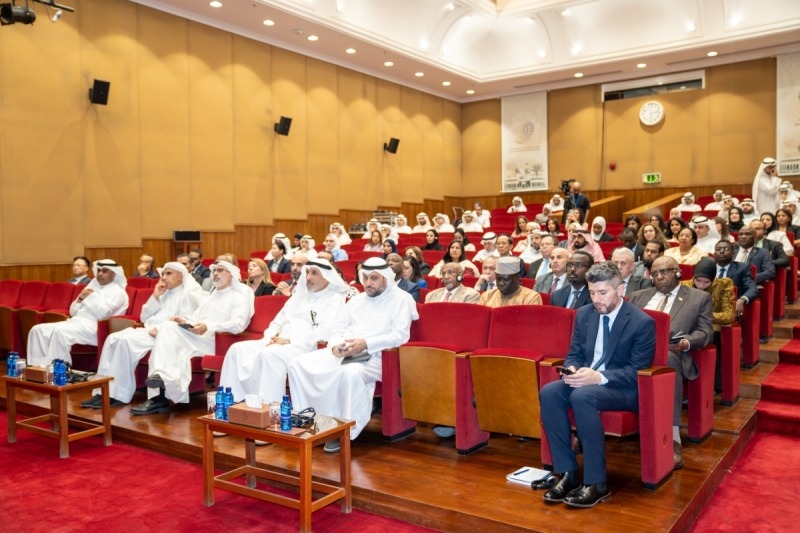
Fletcher reaffirmed that the United Nations looks to Kuwait as a vital partner and leader in humanitarian and development assistance, acknowledging the Ministry of Foreign Affairs for its instrumental role in saving countless lives around the world.
The UN official also commended the Kuwait Fund for Arab Economic Development for its strong support in both emergency response and long-term development, describing it as a cornerstone of Kuwait’s strategy to build resilience and stability. He further praised the active participation of Kuwaiti non-governmental organizations and the private sector, which together reflect Kuwait’s whole-of-society approach to humanitarian work.
“Kuwait is among the world’s largest donors of humanitarian aid per capita,” Fletcher said, recognizing the great legacy of the late Amir Sheikh Sabah Al-Ahmad Al-Jaber Al-Sabah, whose leadership earned Kuwait the title ‘Center of Humanitarian Action’ and himself the ‘Leader of Humanitarian Work.’
Fletcher also lauded Kuwait’s firm and principled stance on the humanitarian crisis in the Palestinian Gaza Strip, emphasizing that Kuwait was among the first nations to call for an unconditional ceasefire and to advocate for the protection of civilians and unhindered access to aid. He said Kuwait’s diplomacy remains a strong pillar of support for the UN’s humanitarian efforts in the region.
Turning to global challenges, Fletcher described the current state of humanitarian work as “the most complex and dangerous in modern history,” with more than 300 million people in need worldwide. He lamented that 2024 was the deadliest year ever for humanitarian workers, with over 300 killed, and expressed concern that 2025 could be worse.
He outlined a UN plan to recalibrate humanitarian action through “regrouping, reform, and renewal,” in response to a severe funding shortfall—only 21 percent of appeals have been met this year. The plan envisions a more flexible, efficient, and technology-driven humanitarian sector that leverages artificial intelligence to strengthen logistics and operations.
Fletcher stressed that the future of humanitarian work lies in empowering local communities and clearly defining life-saving priorities. He said the UN aims to assist 114 million people next year, noting that this could be achieved with just 1 percent of global military spending.
For his part, Fawaz Al-Mazrouei, Director General of the Kuwait Red Crescent Society (KRCS), described Fletcher’s remarks as renewed international recognition of Kuwait’s humanitarian legacy.
He said, “Humanitarian work is not merely a policy for Kuwait—it is part of our national identity and deeply rooted values that make Kuwait a superpower in giving.”
Al-Mazrouei acknowledged the serious challenges facing humanitarian workers, including funding shortages and security risks, which KRCS teams encounter daily while delivering aid to those most in need.
He emphasized that the evolving global landscape demands a renewed approach to humanitarian action, based on genuine partnerships between international bodies and local actors such as the KRCS.
He reaffirmed the Society’s commitment to remain a strategic partner of the United Nations in addressing crises and upholding Kuwait’s humanitarian mission, built on the vision and values of its wise leadership.
— KUNA
Follow The Times Kuwait on
X, Instagram and Facebook for the latest news updates










